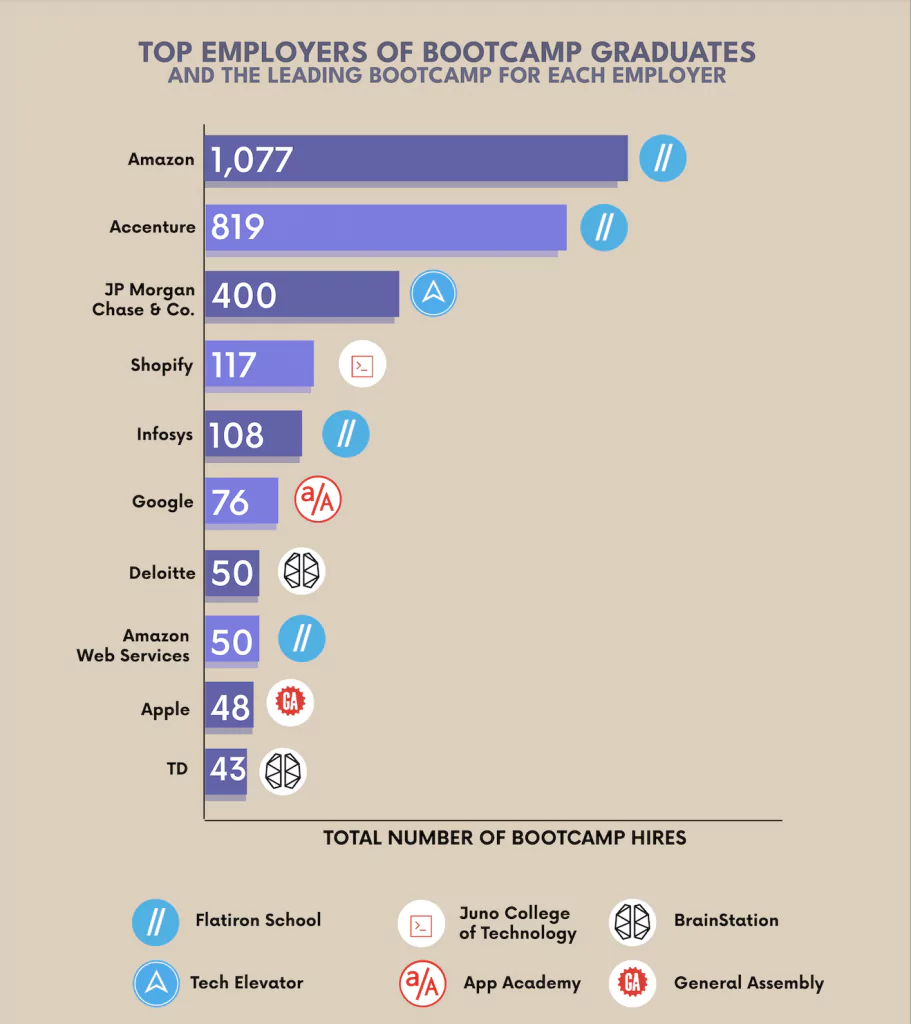
Amidst a harsh job market, developers are feeling the heat. With bootcamp models under fire for being profit-centric, graduates are finding that personal branding, acquiring sought-after skills, and networking are pivotal for survival, alongside relentless self-study and perseverance.

✅ AI Essay Writer ✅ AI Detector ✅ Plagchecker ✅ Paraphraser
✅ Summarizer ✅ Citation Generator
Key Takeaways:
- The current job market is brutal for both newly graduated bootcamp students and experienced developers.
- Bootcamp models are being questioned, with some seeing them as profit-driven and less focused on student outcomes.
- Hard work, persistence, and additional self-study are essential after bootcamp to improve job prospects.
- Making a personal brand, learning in-demand skills, and networking are seen as ways to stand out in the competitive job market.
The Bumpy Road to a Career Change
Sam, a tech enthusiast, is considering a shift from an HR position to software development. Like many others seeking a career change, Sam is pondering joining a coding boot camp, specifically the Hack Reactor 12-week intermediate course. While the stars seem aligned for Sam, the concerns about the current job market and the efficacy of boot camps linger.
Sam wonders, “I’ve been wanting to start a bootcamp for a while now… Has anyone graduated recently that can speak on their experience looking for a job in this market? Is it possible?”
Sam’s concern isn’t without substance. The opinions of recent bootcamp graduates reflect the harsh realities of the tech job market. For instance, *one alum points out, “80% of my HR 12 week bootcamp is unemployed almost 7 months later… I am also suspicious the ‘bootcamp’ model is really a for-profit business model that basically doesn’t care about its graduates.”
Weathering the Brutality of the Market
Despite the bleak job market conditions, some bootcamp graduates have been able to secure jobs, even though it has not been an easy or quick process. However, these cases are more the exception than the rule, and they often involve significant additional work beyond the bootcamp curriculum itself.
One graduate who successfully navigated the challenging landscape shares a story of perseverance: “I did the 12-week program. Graduated in December and had an offer by March. I’m not special. I have no degree, I just spent all my time practicing interviews and learning new things. That put me in a good spot for interviews and I eventually aced one.” The narrative indicates that the bootcamp training itself was only a starting point, and it was continuous self-study, practice, and relentless dedication to interviewing that tipped the scale in their favor.
Another graduate recalls the long and daunting job search period: “It took me 9 months to get my first job post coding bootcamp… I honestly attribute it to luck. Kept feeding the slot machine until something spit out.”
Personal Branding and Continuous Learning
Although the harsh realities of the job market might deter some, it is essential to note that opportunities still exist, and plenty of the big names in the tech world still hire recent bootcampers. However, merely having a certificate isn’t sufficient; standing out from the crowd requires deliberate efforts towards personal branding, networking, and continuous learning.

One of the bootcamp graduates emphasizes the importance of going beyond just a degree: “People expect a bootcamp to give them the job. But your work from and continued learning and networking yourself is key… make a brand of you. Then apply for everything until you get in the door somewhere.”
It’s clear from this perspective that a successful transition into a tech role requires a proactive and well-rounded approach. A bootcamp provides the foundation, but it’s crucial to keep building on that foundation. This might involve further study, attending networking events, creating a compelling online presence, or even starting a tech-related blog or podcast.
Another graduate suggests a different strategy, focusing on a less-saturated technology stack: “Do a Udemy bootcamp, then do it again, then do it again. Focus on Java/ .net stack. There are too many people that know how to do react and typescript/JavaScript these days. .Net still has jobs, because conventional bootcamps are only teaching JavaScript/react.” This advice implies that aspiring tech professionals should look beyond popular languages and consider studying less competitive but in-demand skills.
Conclusion
For those considering a career change into tech through bootcamps, exploring options like the best free coding bootcamps or tailored programs like Sam can be a smart move. These first-hand experiences offer a glimpse into the challenging reality of entering the tech field. However, they also highlight the importance of hard work, persistence, personal branding, and continuous learning. Despite the brutal job market, individuals willing to go the extra mile and perhaps enroll in one of these best free coding bootcamps may find opportunities in the tech world.
Related stories:
Bachelors or Bootcamp – Choosing the Right Path for Aspiring Coders
Coding for Life: This Month’s Best Coding Tips
Crunch Time Crisis: A Reality of a Junior Developer’s Job
Follow us on Reddit for more insights and updates.





Comments (0)
Welcome to A*Help comments!
We’re all about debate and discussion at A*Help.
We value the diverse opinions of users, so you may find points of view that you don’t agree with. And that’s cool. However, there are certain things we’re not OK with: attempts to manipulate our data in any way, for example, or the posting of discriminative, offensive, hateful, or disparaging material.